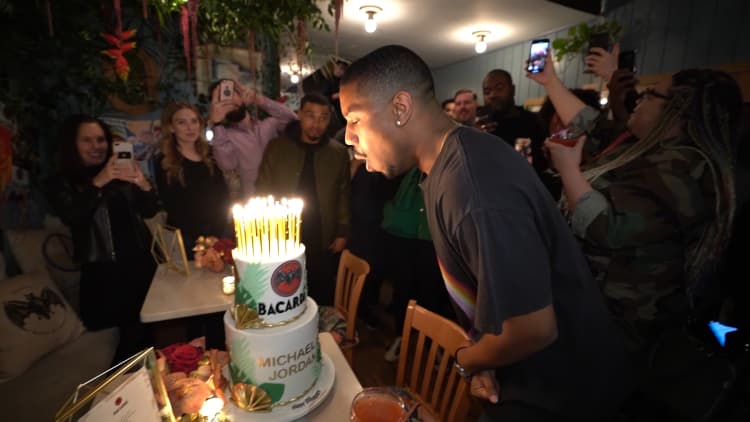While most of her classmates will spend Sunday night watching the Academy Awards from their dorm rooms, University of Pennsylvania sophomore Claire Sliney will be watching live from her seat at the Dolby Theatre in Los Angeles alongside Hollywood's top stars as she anxiously waits to hear a certain name called out.
At only 20 years old, Sliney could win an Oscar for her work as an executive producer of a 26-minute short documentary called "Period. End of Sentence." The film, released by Netflix this month, details the menstruation stigma girls in India face, as well as the efforts made by a non-profit Sliney helped co-found in high school to address the issue.
In an interview with her university, Sliney says she was screaming, jumping up and down, and then in tears when she saw the nomination announcement on Jan. 22 because she was so overwhelmed with excitement.
So how did a college student become part of an Oscar-nominated film?
It starts about six years ago with a homegrown project spearheaded by students, teachers, and parents at Sliney's high school, Oakwood School, a progressive institution in North Hollywood.
While a freshman at the school, Sliney joined the Girls Learn International club, whose members then took a field trip to the United Nations Commission on the Status of Women, where they learned about the taboo of menstruation in other cultures, which often prevents girls from attending school or forces them to drop out.
Sliney and the club decided to do something about it.
They learned that Indian social entrepreneur Arunachalam Muruganantham had created a machine that could produce inexpensive feminine hygiene products, which would give women in rural villages access to cheap, reliable menstrual pads instead of relying on pieces of cloth.
So they began fundraising to purchase one of these machines, creating The Pad Project, a non-profit that Sliney and others continue to manage today.
With the help of Action India, another nonprofit dedicated to women's rights, they were able to purchase such a machine for the women living in a rural village outside Delhi.
But along the way, another idea emerged. Why not raise awareness of the issue and drive donations to The Pad Project with a short documentary?
The Oakwood parents, many of whom work in Hollywood, suggested the project and encouraged them to find a professional director. Rayka Zehtabchi, a recent graduate of the University of Southern California's film school, was approached and told The Philadelphia Inquirer that she "was totally moved and wanted to jump in."
Zehtabchi and her crew, working essentially for free, she says, traveled to India twice to document the pad machine's arrival and then, again, six months later. In that short span, the women went from not knowing what a pad was to using regularly them and, some were even earning wages running the machine.
The documentary was released on April 5 and presented at film festivals across the country where it was positively received, winning awards such as the AFI Audience Award for Best Documentary Short and the Savannah Film Festival Best Doc Short, making it eligible for Oscar consideration.
Sliney told her university that winning awards was never the intention: "We wanted to raise awareness about the issue. The only way you can dispel a taboo is by making the issue known and normalized," she said. "We didn't make the film to qualify for an Oscar. For us it was really our passion project."
Regardless of what happens Sunday night, Sliney says she and the other founders of The Pad Project intend to put any newfound fame or donations toward purchasing more pad machines for other villages in India.
And it will certainly be quite a line to any future resume, win or not. As Sliney told The Philadelphia Inquirer: "I'm 20 years old. I don't feel like I'm an Oscar nominee. That's something you do when you're, like, 40."
Like this story? Subscribe to CNBC Make It on YouTube!
Don't miss: Meet the woman who has 3 Oscars and is competing against herself for another one



